'Anti-democratic': Some teachers blast new laws targeting discussions of race in schools
Some proponents of the bills say that lessons on race fill children "with hate."
For middle school American history teacher Daniel Santos, discussing racial inequality is a necessary part of his lesson plan.
Santos, who teaches at a public school in Houston, said that his students are inquisitive, asking him about current events like George Floyd's death and the Jan. 6 Capitol insurrection, for instance. He said students wanted to connect these moments to other pieces of U.S. history, such as the Jim Crow era and voter suppression efforts.
But a new bill signed into law by Gov. Greg Abbott that aims to restrict certain lessons on race might make these conversations "impossible" for him and his students, Santos said.
"I fear that our lessons would be diluted in order to appease and acquiesce to these laws and I anticipate that many teachers are going to find it impossible to do that," Santos said. "We have a responsibility to teach the truth to our students."
Santos is one of several teachers who spoke to ABC News and are fighting a wave of legislation in Texas and other states that would limit or ban certain lessons on race, gender and oppression in public schools.
They say that the vague language in these bills may interfere with their lessons, curriculum and ability to have truthful conversations with their students about inequality.
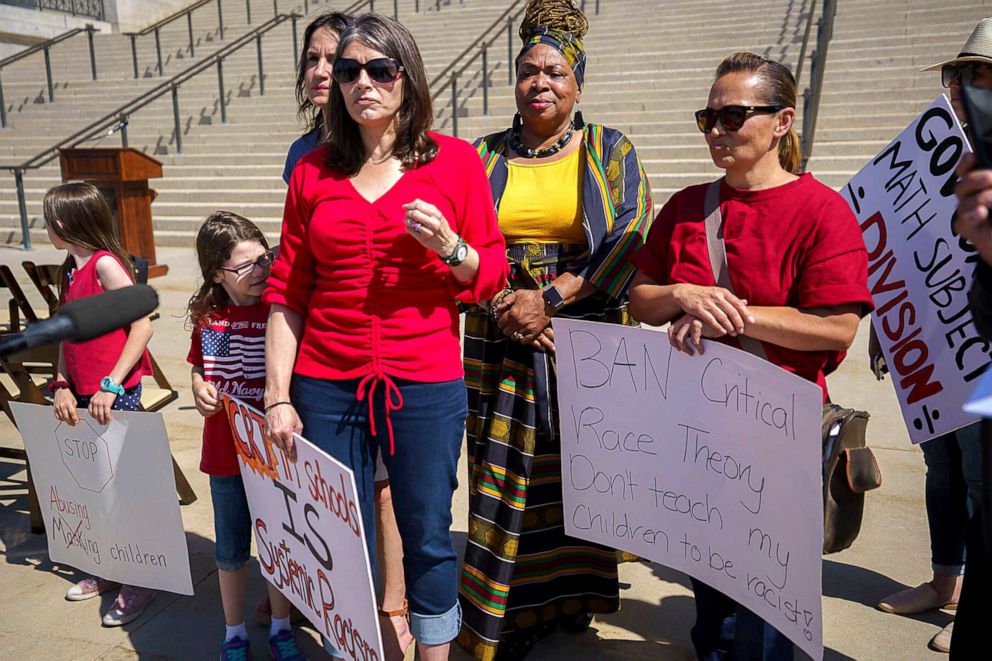
Complicating matters is that current Texas state guidelines require that students learn about Jim Crow, slavery and other major events in the struggle Black people faced in securing their rights.
"It's important as educators ... to present a nuanced view of American history so that my students can make informed decisions, as informed future leaders and citizens, about the social injustices that we see in the world today, and how they can solve them," Santos said.
Proponents of the bills say that the laws will stop educators from teaching children to be anti-American, because they say some lessons seek to shame white students for their skin color. These laws are expected to be implemented in the upcoming school year.
"When Texan parents send their children to school, they expect their students to learn to think critically without being forced to consume misinformation about our country's founding and the biases of advocacy groups that seek to belittle our democracy and divide us," Lt. Gov. Dan Patrick said in a statement about the state Senate's version of this kind of bill.
Murky debate over critical race theory
On June 15, Abbott signed one of these bills into law. In a statement, he slammed critical race theory.
"House Bill 3979 is a strong move to abolish critical race theory in Texas, but more must be done," Abbott said in the statement. He is calling back state lawmakers to revisit the issue in July.
Critical race theory -- the controversial idea that American institutions are built on and help perpetuate racism and that white people have privilege that helps them escape the race-based effects of those structures -- has been invoked by legislators pushing similar bills, even though many of these laws don't mention it in their texts.
Critical race theory has been a buzzword for several conservatives, including former President Donald Trump, who opposed the 1619 Project and its revisionist look at the founding of America and the legacy of slavery. Some have proposed alternative "patriotic" education, such as Trump's proposed "1776 commission," which aims to undercut what it called "re-education" attempts "around the idea that the United States is not an exceptional country but an evil one."
Educators say that critical race theory is taught in academia, not in K-12 public schools, but the debate around the issue has become expansive and murky.
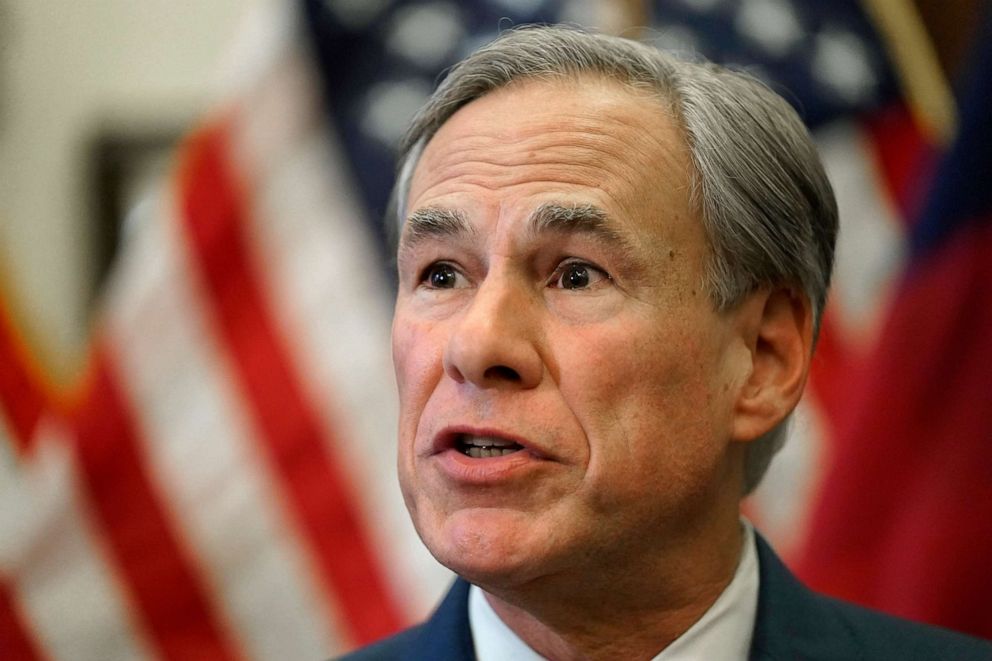
The Texas legislation states that public school educators would be banned from linking historical racial events to the "authentic founding principles of the United States," particularly if it signals that "one race or sex is inherently superior to another race or sex" or makes students "feel discomfort, guilt, anguish," i.e. white privilege or systemic racism.
At least five other states have adopted similar laws including Arkansas, Florida, Idaho, Oklahoma and Tennessee. Similar bills have been introduced in at least 20 other states across the country.
Nelva Q. Williamson, another Houston public school teacher, said that inequality has been part of U.S. history since its inception and that these new laws will impede on factual lessons about racism and oppression.
"I'm going to continue to teach the way I have been teaching -- with the whole of history: the good, the bad and the ugly," Williamson said, who teaches in high school. "This is a part of our history."
State standards contradict new legislation
The Texas Administrative Code, also known as the Texas Essential Knowledge and Skills, ensures that students in the state learn about the history of Black people in America through lessons on slavery, Juneteenth, the Jim Crow era, the civil rights movement and more major historical events.
Santos says that sometimes his class may also discuss modern issues of segregation, redlining and racial discrimination, to connect them to other historical events.
From the elementary level to the high school level, the Texas state standards have long included the movement toward equal rights for Black Americans.
The standards ask that students be able to explain many instances of oppression such as "obstacles to civil rights for minorities such as the suppression of voting" and the "causes and effects of events and social issues such as immigration, Social Darwinism, the Scopes Trial, eugenics, race relations, nativism, the Red Scare" -- lessons that might be circumscribed under the new legislation.
The new law is expected to be implemented in September with the start of the school year, but Williamson and others say that they'll continue to teach what's in the standard curriculum for history classes.
Even in states where bills are merely under consideration, fear and anger are rising among teachers and the restrictions being put on their classrooms.
Misty Crompton, a middle school teacher in New Hampshire, said that any efforts to make an equitable environment for teachers and students of all backgrounds will be derailed by these bills.
Crompton is currently on a sabbatical to focus on promoting educational equity and leveling the playing field for students by analyzing how identity, race and culture play out in the classroom.
She said these bills are creating an environment where teachers and children feel policed.
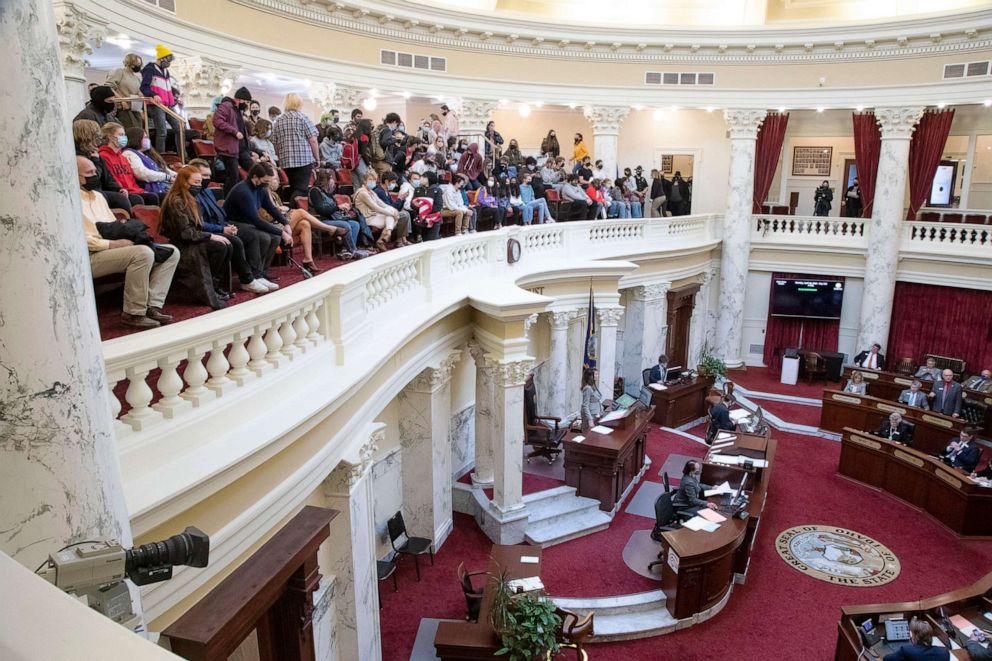
"The teachers who are helping to create these environments and administrators need to be able to examine and discuss where the sort of norms or standards lie and how those are affecting their students," Crompton said.
In Texas, Williamson said some teachers fear being fired from their jobs, penalized or sued for any lessons on race that are perceived to undermine the restrictions, now that the legislation has officially passed. It is unclear what would happen to teachers if they are suspected of doing so when the law goes into effect.
The Houston Independent School District declined ABC News' request for comment.
"Teachers have been censored and threatened with being fired for what they're saying in the classroom," Williamson said. "That, to me, is censorship -- when you are teaching history and it is factual."
Becky Pringle, the president of the National Education Association -- a labor union that represents public school teachers and other school personnel -- has heard from teachers across the country who fear that basic Black history will be sidelined for more positive views on America's past.
"Our educators are made to believe that they cannot talk about the civil rights movement or any of the movements in this country that have challenged us," Pringle said. "That's what they do -- they challenge us to actually tell the truth. … We cannot deny our students the opportunity to be prepared with the tools and with the guidance they need to honestly face to face our past and our present."
Conversations about race reemerge after George Floyd's killing
Williamson said that the nationwide racial reckoning that followed the death of George Floyd sparked questions, curiosity and conversation among her students.
Floyd was originally from the Houston neighborhood where Williamson and her students attend school. She said there were class periods where students wanted to talk to each other about the killing, and she noticed that it was one of the rare times during the virtual learning period that almost all of her students had their cameras on during class.
"What I did was I allowed my students to drive the conversation," Williamson said. "This legislation would block us from being able to do that. And I think that is wrong for our kids, emotionally."
Some teachers that ABC News spoke to believe that the recent attacks from Republican legislators are a backlash against the anti-racism movement that followed Floyd's death in the summer of 2020. Protesters took to the streets to fight against racial prejudice, systemic racism, and the oppression of Black people in America.
"[Students] want explanations: why is this happening, why is it happening in the way that it's happening," said Ursula Wolfe-Rocca, a teacher from Oregon representing the Zinn Education Project. "They're also really really desperate for examples from the past. They want to know that other people have confronted such things, and are interested in knowing how those other people faced similarly confusing, daunting moments of crisis."
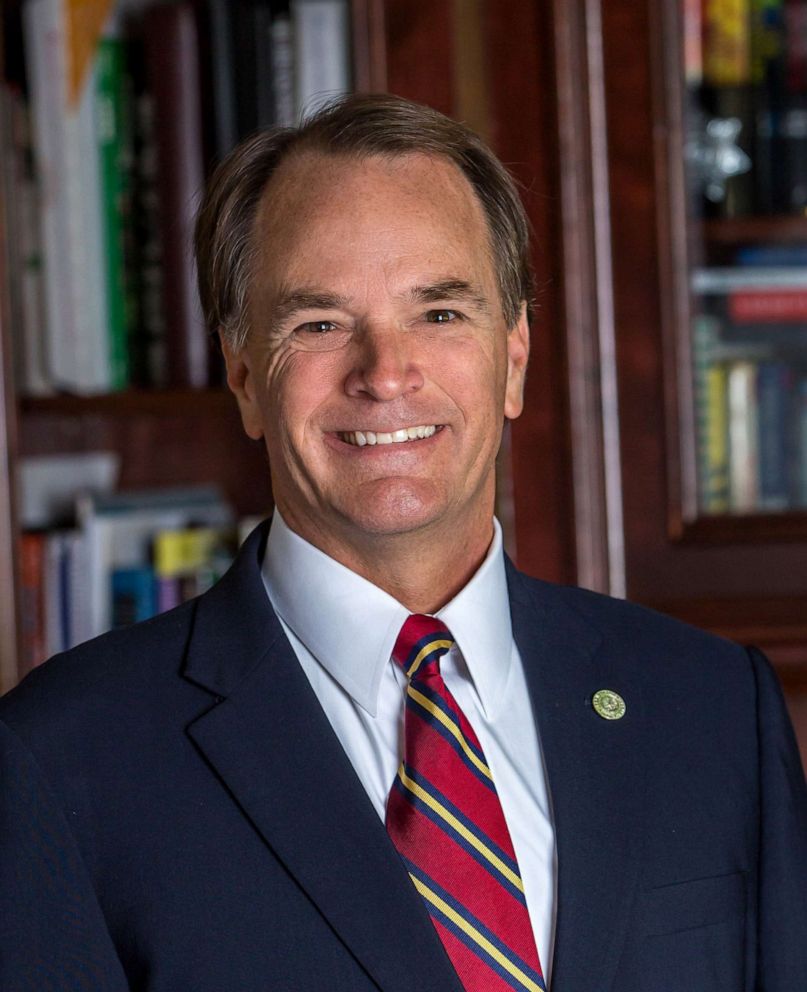
What are legislators worried about?
Republican state Rep. Steve Toth introduced the legislation that Abbott recently signed. In a recent interview with ABC News, Toth said he believes that critical race theory blames white students for actions of racism in the past by saying they have any kind of privilege.
Toth said that some lessons on race are filling children "with hate," and causing racial tension among students and adults alike. He said that this legislation was intended to stop teachers from discussing privilege and that institutions are racist, asserting that Texas is not a racist state.
"We should not teach that one race is superior to another," Toth said, referring to the teaching of white privilege. "We should not teach that one race is inferior to another."
Toth later added that he believes there has been systemic racism in the United States, but that there is no systemic racism in Texas right now.
This is not the first legislation to be passed in the state and signed into law that targets the classroom.
Abbott also recently signed a bill that establishes "the 1836 Project" -- which he tweeted will promote "patriotic education" and ensure "future generations understand TX values."
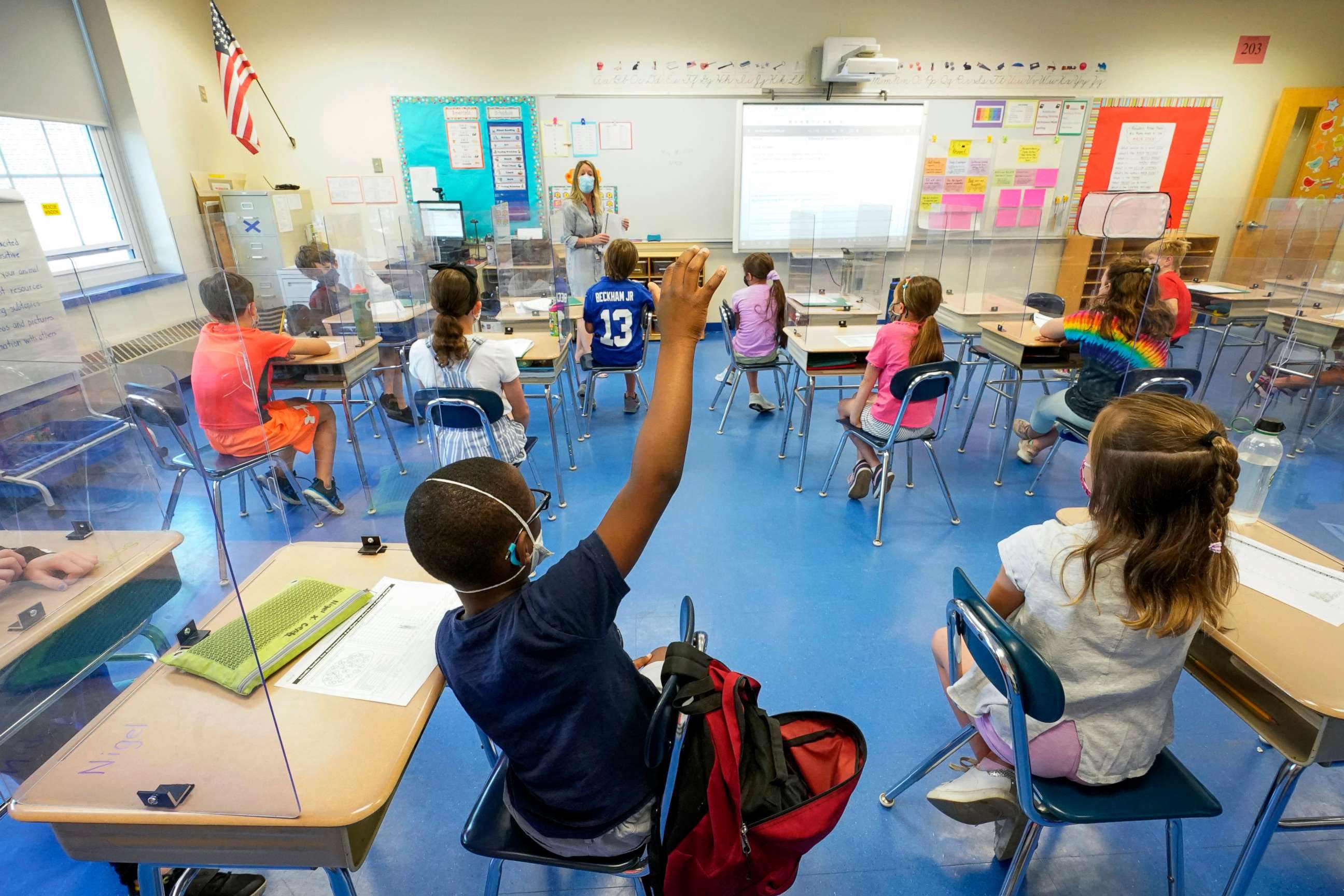
The project will be a "presentation of the history of this state's founding and foundational principles" and "an examination of how this state has grown closer to those principles throughout its history."
Abbott's office and the Texas Education Agency did not respond to ABC News' requests for comment.
Educators say that this way of teaching is disingenuous and erases important pieces of history -- a tactic that Wolfe-Rocca calls "anti-democratic."
"Attacks on education have always been part of the project of white supremacy," Wolfe-Rocca said. "I would place this alongside ... the denial of enslaved people the right to read; stealing indigenous children and putting them in boarding schools; burning churches and schools during the civil rights movement."
"These laws say that we cannot teach that the U.S. was fundamentally institutionally or systemically racist or sexist," Wolfe-Rocca added. "You can't go back to Reconstruction without asking what was being reconstructed, and what was being reconstructed was a society built on slavery and enslavement … That's why we say that these laws are forcing us to lie to kids."




